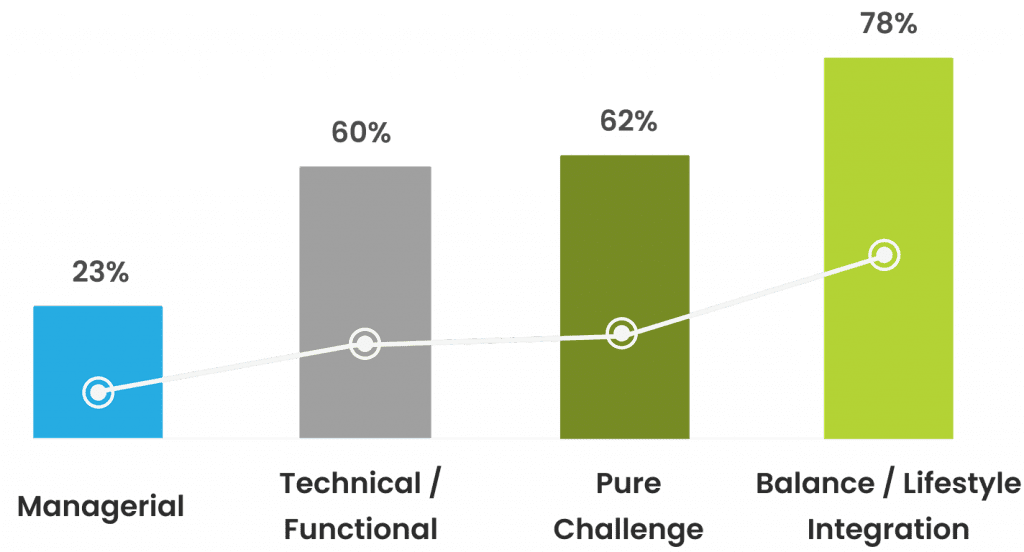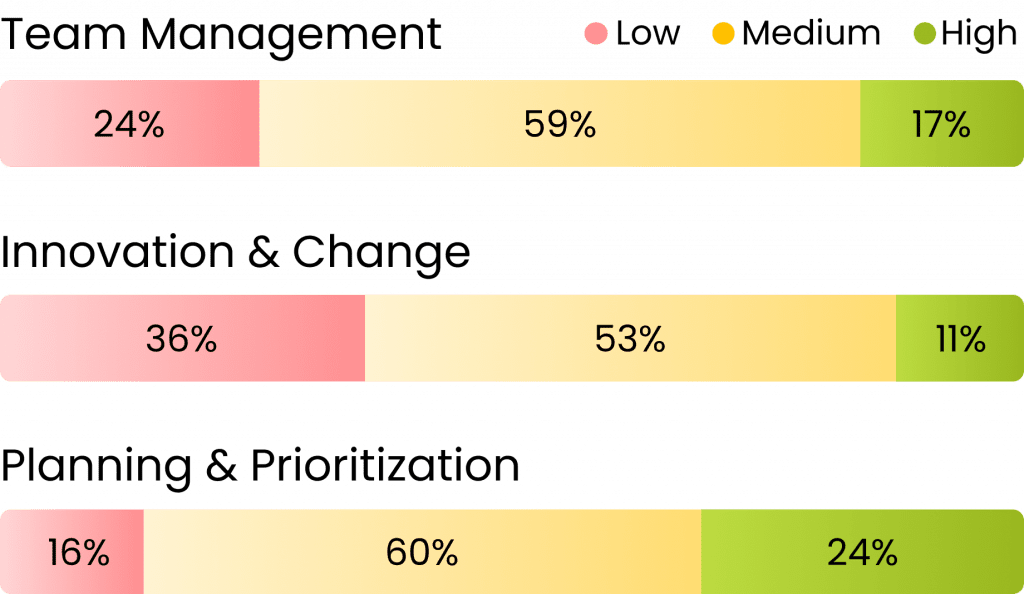
As companies strive to survive and grow in a rapidly changing business environment, agility, cross-functional collaboration, and execution excellence have become critical for success.
Organizations with a more agile, disciplined, and engaged frontline workforce are better positioned to thrive.
This has put the spotlight on the managerial capabilities of first-level managers in functions like sales, manufacturing, and supply chain—areas with large, distributed teams.
Our work with hundreds of companies on assessing and developing first-level managers reveals multiple facets of this growing challenge.

of FLMs score low on innovation and agility traits, as per Think Talent Personality Inventory data from over 10,000 participants.


Only 23% of FLMs have “Managerial” as one of their top three career anchors.
In Edgar Schein’s framework, “Managerial” career anchor indicates managing people & resources as key motivator and driver for the person.

A significant proportion of FLMs show low proficiency in key managerial competencies, including planning, execution, and people management.
Data based on ADC scores of 5,792 first-line managers across industries and functions.
info@thinktalentindia.com
+91-9910955257
+91-8828158509